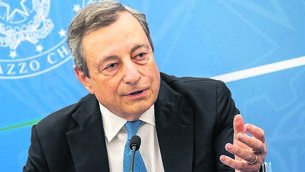Maria Steen would have electrified a dull race, but her exclusion is not undemocratic

There may have been a desire for Maria Steen to run, but to suggest that anything undemocratic happened to stop her is categorically untrue. Photo: Brian Lawless/PA
The last word had barely left Maria Steen’s mouth when Independent Ireland sent out a press release lamenting her failure to get on the ballot paper for the presidential election.
The “recent events around this year’s presidential election” have highlighted “an affront to democracy that can no longer be ignored”, and they will bring forward a bill “seeking a referendum on presidential nomination reform”.
















